How do you get caught with yin and yang contracts in the NBA?
4:53pm, 9 October 2025Basketball

Clippers owner Ballmer never dreamed that after buying the team for so many years, spending so much money and raising so many people, he failed to win the championship and instead became a defendant.
According to reporter Pablo Torre's revelations, Ballmer is suspected of injecting capital into a company called Aspiration, through which he provided Leonard with equity and endorsement contracts worth a total of $48 million to avoid the salary cap and pay high luxury taxes.
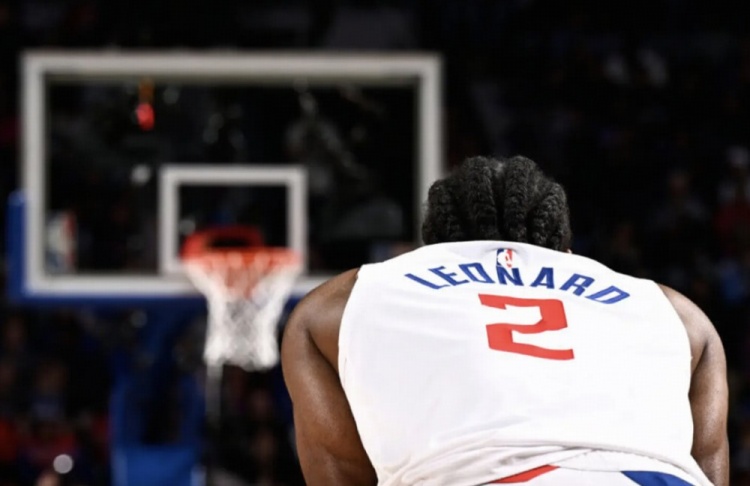
Aspiration is a "green bank" company that makes money by planting trees and selling carbon credits to companies. Seven former Aspiration employees reported anonymously that although Leonard signed the contract, he did not fulfill any endorsement obligations and did not even mention the company on social media. If Leonard leaves the Clippers, this agreement will automatically terminate. The implication is that this is a yin and yang contract.
In an interview with the media, Xiao Hua took matters into his own hands and claimed that these so-called evidence did not prove that the Clippers violated the rules and that an investigation was needed before a conclusion could be made. However, before that, the league president had privately exchanged opinions with many media, agents, and coaches, and received the following feedback: Ballmer had a hard time proving that the lump in his crotch was just mud. Many media predicted the Clippers' punishment based on the Minnesota Timberwolves' precedent, which was historically known as the NBA's first yin-yang contract case.
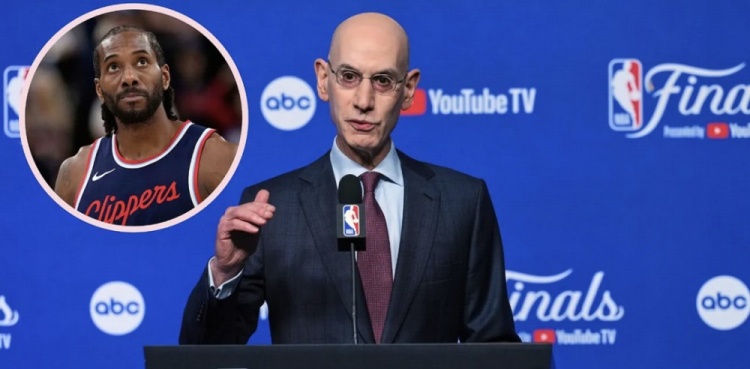
This story also starts with Garnett's contract extension. In 1997, the Timberwolves offered him a six-year contract of US$102 million. From the perspective of Timberwolves owner Glen Taylor, this was already a sky-high price. After all, he only spent US$94 million to buy the team. However, the free agent market at that time had gone crazy. Mourning and Juwan Howard both received contracts worth 100 million yuan. The Timberwolves' offer obviously could not satisfy the Wolf King's appetite.
Negotiations reached a deadlock until the last moment before the signing deadline. Garnett's agent Eric Fleischer bypassed Timberwolves Vice President of Operations McHale and found Taylor for approval, and finally completed a six-year contract extension at a price of 126 million. After the contract was signed, the feud between Fleischer and McHale was finally settled, which also paved the way for the subsequent Yin-Yang contract.
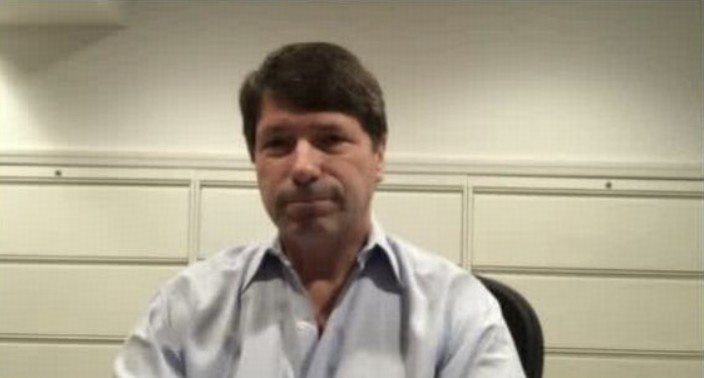
Eric Fleischer
In 1998, the Timberwolves signed a one-year, 1.75 million short contract with Joe Smith. In the eyes of the media, this signing is somewhat strange. Joe Smith was the No. 1 pick in 1995. After playing for the Warriors for two years, he rejected an 80 million contract extension and was subsequently traded to the 76ers. Although his performance in Philadelphia declined and he experienced the turmoil of the league's lockout after returning to free agency, Smith obviously has not been reduced to an annual salary of 2 million. It is worth mentioning that Smith's agent at the time was Fleischer.
In the next two years, Smith signed a contract with the Timberwolves on a one-year basis, and his salary was significantly lower than the market price. Anyone with a discerning eye can see that the Timberwolves are actually taking advantage of the rules. By doing this, they can obtain Smith's bird rights after three years, thereby breaking through the hard cap and completing the contract extension.
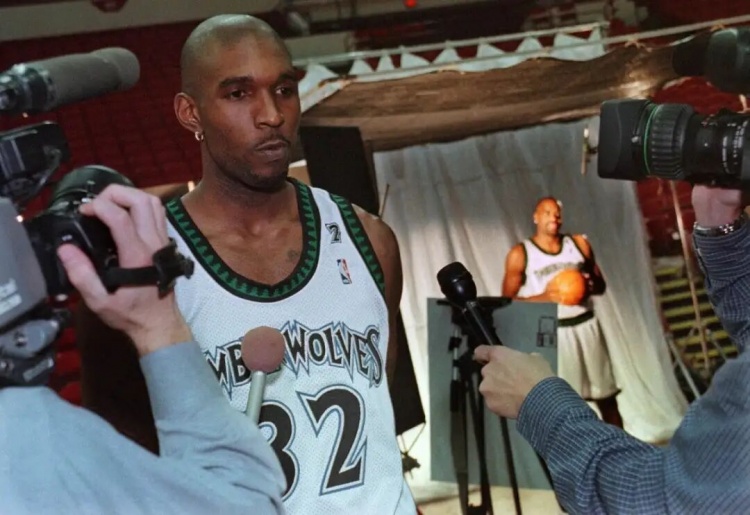
This method of play is not the first of its kind for the Timberwolves. Many teams have done this before to avoid the salary cap. In 1994, Danny Manning, who had returned to free agency, signed a one-year, $1 million contract with the Suns. At that time, his agent swore that Manning only wanted to win and didn't care about money.
In fact, the Suns could only offer such a contract at the time. Manning accepted the low salary because he received a promise for the future. In the 1994-95 season, Manning injured his knee and played only 46 games. Suns general manager Colangelo still offered a seven-year, $44 million contract extension. Manning was even using crutches when he signed the contract.
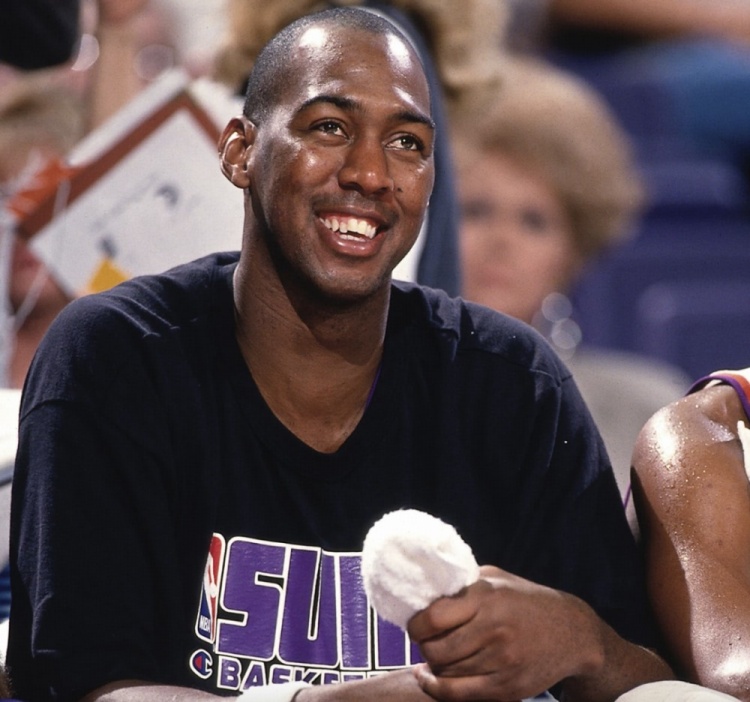
Danny Manning
Because it is difficult to obtain specific evidence, NBA officials can only turn a blind eye to this kind of behind-the-scenes operation. The reason why the Timberwolves got into trouble is because the agent took the initiative to send a real hammer after the agent argued.
In July 1999, Fleischer’s former employee Andy Miller resigned and poached 16 clients, including Garnett and Smith. In 1992, Miller entered Fleischer's agency as an unpaid intern and rose to president in just a few years. Fleischer couldn't swallow the breath and felt like Miller had stabbed him in the back.
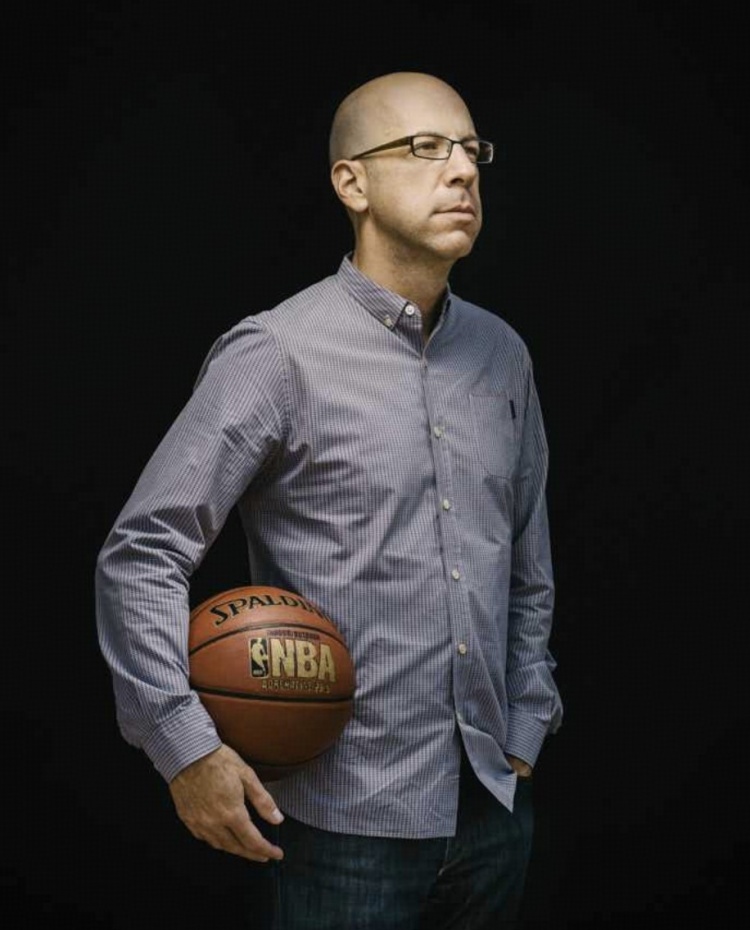
Andy Miller
In December 1999, Fleischer filed a lawsuit. In a 23-page complaint, he accused Miller of conspiring with 10 NBA players, including Harrington and Billups, as well as Miller's new owner, Wilhelmina Models in New York, to defraud the agency business of millions of dollars, and demanded compensation of US$30 million.
By coincidence, an investor in Fleischer's agency was a secret agent of the FBI. Through this informant, the FBI raided Miller's hotel room and collected a lot of evidence of illegal operations by him and his former boss. For example, Fleischer had private contact with college players such as Marbury, Brand, Raheem, and Ray Allen, and illegally paid for their meals and accommodation; in order to attract players, Miller arranged for models to date them. In June 1998, Miller sent a fax to Wilhelmina's adviser, which read: "Garnett is obsessed with a young black model. What do you think about this matter?"
However, what Fleischer did not expect was that during the subsequent investigation and evidence collection process, a copy of the secret contract he signed with Joe Smith was also pulled out, and it was written in black and white and irrefutable. When the news first broke, the media couldn't understand why a shrewd person like Fleischer would make such a low-level mistake and leave his own evidence.
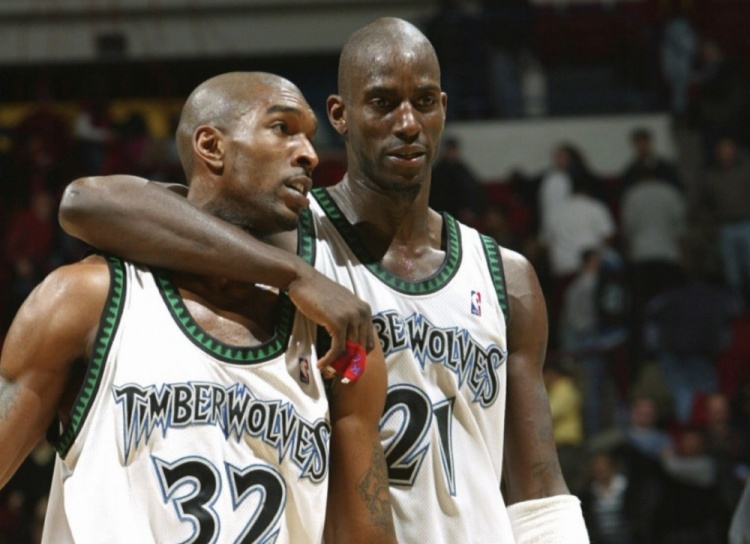
The reason is simple. After experiencing the controversy over Garnett's contract extension, Fleischer and McHale have fallen out and lost trust in each other. In the entire Timberwolves club, Fleischer only trusts Taylor.. However, Taylor was ill at the time and needed heart bypass surgery. Fleischer was worried that something might happen to him and no one from the Timberwolves would admit it in the future, so he insisted on signing a secret agreement.
There are two secret agreements, one of which is the contract between Smith and the Timberwolves. The two parties agreed that if Smith is selected as an All-Star in the first two years of joining, or helps the Timberwolves reach the Western Conference Finals, he will receive a seven-year contract extension of 86 million. If the contract cannot be completed, there will be a guarantee of 40 million.
The other is the brokerage contract between Fleischer and Smith. In order to prevent Smith from being poached by Miller or other agents, there is a special clause in the contract-even if this secret agreement does not take effect for various reasons, Fleischer will receive a commission of 2% of the total contract amount.
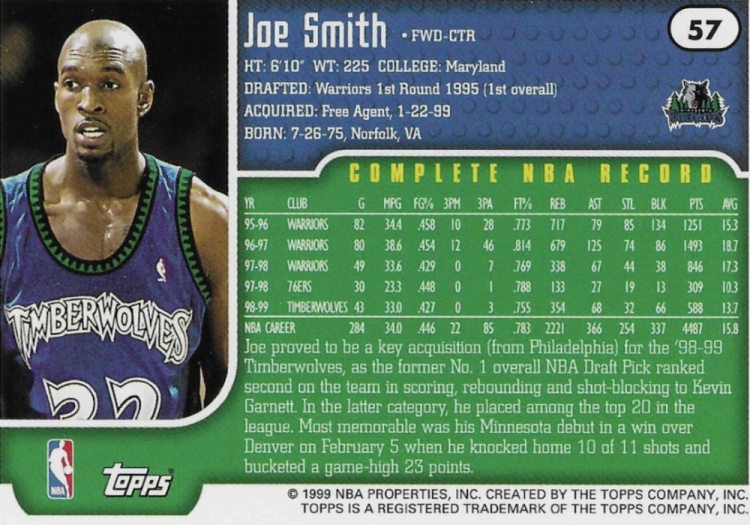
After the yin-yang contract was exposed, David Stern cut the knot quickly and issued the most severe fine in the history of American professional sports - a fine of US$3.5 million and depriving the Timberwolves of their first-round draft picks for the next five years. There were two voices in the market at the time. One was that Stern was just looking at others and that if the Lakers or Knicks had made the mistake, they would certainly not have been punished so severely. The other was that Stern's actions were understandable and the evidence was conclusive, so he must scare the monkeys. The Minnesota media lamented that the Timberwolves were almost sold to New Orleans back then, but it was Stern's mediation that allowed them to stay. Now he has personally destroyed the team.
As the owner and general manager, Taylor and McHale cannot absolve themselves of the blame. The former was suspended until August 31, 2001, and the latter was suspended until July 31 of that year. Taylor admitted to reporters that he signed the secret agreement, but insisted that vice president McHale and head coach Flip Saunders had no knowledge of it. McHale has always denied being involved in this matter, but he couldn't help but complain: "There are eight to ten teams in the league that have been doing this, but they are better at hiding it, and we are not good at it."
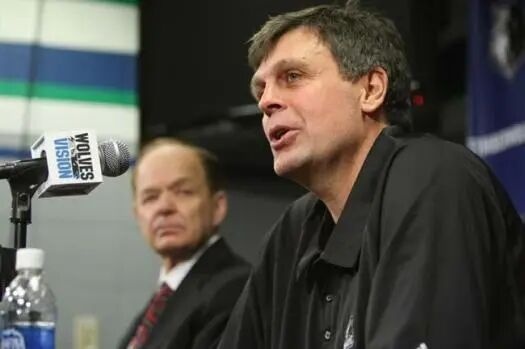
As for Smith's motives, it is not difficult to guess. When he participated in the draft, he caught up with the implementation of the rookie salary cap. His salary in the first three years combined was only 8.53 million, and the previous year's No. 1 pick, Glenn Robinson, signed a 10-year contract of 69 million. After the Yin-Yang contract leaked, all contracts signed by Smith and the Timberwolves were voided. After playing for the Pistons for a year, he finally made a two-way trip with the Timberwolves and signed a six-year, $34 million contract.
The Timberwolves ultimately became a typical example of shooting themselves in the foot. Although the NBA was merciful and restored Minnesota's 2003 first-round draft pick, they actually selected Ndudi Ebey, a loser who disappeared from the NBA after playing only 19 games in two seasons. This resulted in Garnett lacking the support of a strong rookie during his peak period. To this day, the Minnesota media is still wondering. If these draft picks had not been punished and the Wolves had added Arenas, Tony Parker, Dalembert, Gerald Wallace or Salmons earlier, would it have been possible to win the first championship in team history?
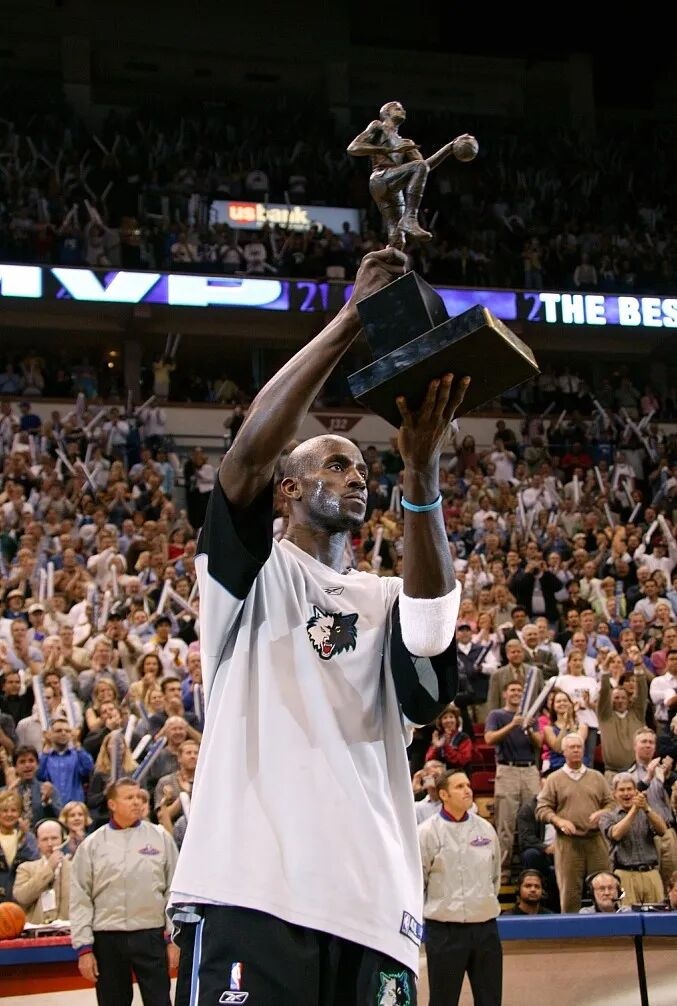
Compared with his predecessor Stern, Xiao Hua was somewhat indecisive and postponed the date of announcing the investigation results until after the All-Star Game. However, this is excusable. After all, the NBA has not obtained ironclad evidence to this day. On the other hand, this "penalty" may have a chain reaction: if the Yin-Yang contract is confirmed and the NBA fines the Clippers, the reputation of the entire league will be affected, and the supervision and review of the team will become increasingly strict in the future; if the Clippers are lenient, other teams will follow suit without scruples, using shell companies to avoid salary caps and luxury taxes, and the salary system will exist in name only.
Many Clippers fans do not appreciate the league's delayed penalty, but they hope to be relieved. A fan wrote on social media: "I'm tired of the constant circulation of Leonard's news. Hurry up and end the investigation and cancel the contract."
Welcome everyone to check out our WeChat public account "Captain of the Post-Sports Workers" for more NBA and CBA related archeology, comments and character content >>
(Text/Lanjian Shisan)
Mini-game recommendations:1941 Frozen FrontRelated Posts
- Adebayo talks about Wenban s 7-foot-5: There are already many tall players in the league, and reporters are even more amazed by his height.
- Shams: George s surgery is to prevent injuries from becoming persistent injuries. & players are very cautious
- Reeves: I thought about the free throw I made when I was teasing Doncic on social media and I just thought I must not miss it.
- Join the battle! Meiji: In addition to Boat Lake Deer Wolf, the Warriors also have the intention of Bill
- My girlfriend appeared in surprise! Clay posted a photo: The best thing in life is life itself!
- Valan talks about ice-filled shoulders multiple times: no injuries or pain, just preventive measures
- With Bill leaving the team, the deal he got became one of the worst deals in the Suns history.
- Commentary: Who would have thought that one day the Warriors would be abandoned and kill Rollins?
- Tuesday’s sports lottery basketball highlights: Nuggets start road trip, Kings’ sluggish defense is worrisome
